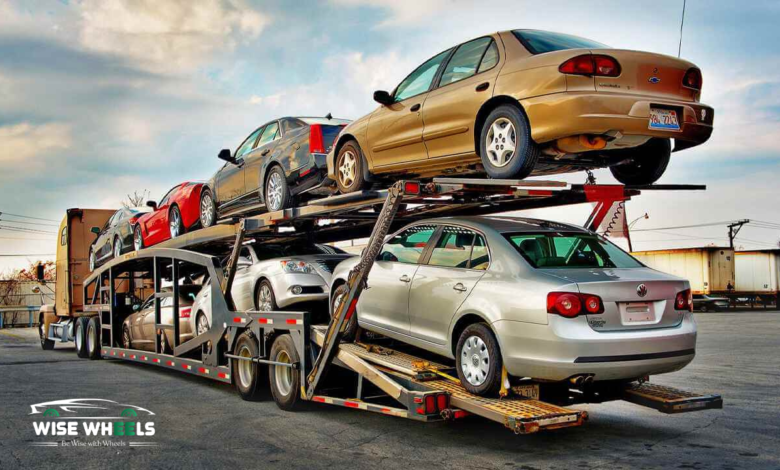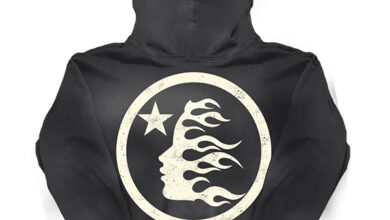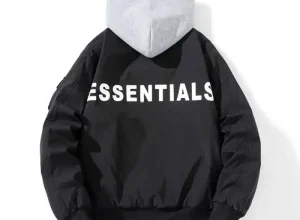Second Hand Car Purchase in Pakistan: Everything You Need to Know

Buying a second-hand car in Pakistan can be one of the smartest financial decisions you make, if done right. With the prices of brand-new vehicles increasing annually due to currency fluctuations, import duties, and rising manufacturing costs, many people are turning to the pre-owned market for a more affordable option. A well-maintained used car can give you years of reliable service without burning a hole in your wallet. However, the process can be tricky, especially for first-time buyers who may not be familiar with the local automotive landscape. This guide will take you through everything you need to know for a Second Hand Car Purchase in Pakistan, from finding the right car to finalizing the deal, ensuring you make a smart and informed decision.
Understanding the Second-Hand Car Market in Pakistan
The second-hand car market in Pakistan has seen substantial growth over the last decade. As brand-new car prices continue to rise, more buyers are opting for pre-owned vehicles, creating a thriving market for both buyers and sellers. Whether you are in Karachi, Lahore, Islamabad, or smaller cities, there are hundreds of options to explore. From budget-friendly hatchbacks to luxury sedans and SUVs, the variety is vast.
Multiple factors fuel this boom in the used car segment. Inflation has made new cars less affordable, while the import restrictions on vehicles have limited the availability of brand-new models. At the same time, local assembling of cars often leads to long delivery times for new vehicles, making second-hand options more appealing.
Why Choose a Second-Hand Car Over a New One?
Opting for a second-hand car comes with several benefits. First and foremost, the cost savings can be substantial. A brand-new car loses value quickly in the first few years due to depreciation. By buying a car that is two to four years old, you avoid the steepest part of the depreciation curve, meaning you get better value for your money.
Another key advantage is variety. In the used car market, you can find models, trims, and even imported vehicles that may no longer be available as new. This opens up a wider range of options in terms of features, performance, and style. Additionally, insurance costs for used cars are generally lower, and registration fees are less compared to brand-new models.
Popular Models in Pakistan’s Used Car Market
When it comes to used cars in Pakistan, certain brands have established themselves as reliable and high in resale value. Toyota, Honda, and Suzuki dominate the market due to their reputation for durability, widespread service network, and easy availability of spare parts. Models like the Toyota Corolla, Honda Civic, and Suzuki Alto are among the most sought-after due to their reliability and ease of maintenance.
Imported Japanese cars, such as the Toyota Aqua, Honda Vezel, and Daihatsu Mira, are also popular choices. These vehicles often offer better features, fuel efficiency, and safety standards compared to locally assembled models, though they can be more expensive in terms of spare parts.
Where to Find Second-Hand Cars in Pakistan
Finding the right second-hand car can be a mix of online and offline searches. In big cities like Karachi, Lahore, and Islamabad, there are dedicated car markets where hundreds of vehicles are displayed for sale. Popular spots include the Sunday Car Bazaar in Karachi and car showrooms along major roads in Lahore.
Online platforms have revolutionized the way people buy and sell cars in Pakistan. Websites like Wise Wheels, PakWheels, and OLX offer thousands of listings from both dealers and private sellers. These platforms allow you to filter by price, make, model, year, and location, saving you time and effort.
Inspecting the Car Before Purchase
A thorough inspection is the most critical step in any second hand car purchase. Even if the vehicle looks perfect on the outside, hidden issues can cost you heavily in repairs. Ideally, bring along a trusted mechanic or get the car inspected at an authorized service center.
Start by checking the car’s exterior for signs of accidents or repainting, which might indicate damage. Inspect the tires for wear, examine the engine bay for leaks, and check fluid levels. Test all electronics, including lights, air conditioning, and infotainment systems. A test drive is essential to assess the car’s performance, handling, braking, and any unusual noises.
Negotiating the Price
Negotiation is a standard part of the second-hand car buying process in Pakistan. Sellers often set a higher price expecting buyers to bargain. However, successful negotiation requires knowledge , research the market value of the car model you are interested in, considering its year, condition, and mileage.
Be polite but firm in your approach. Point out any issues found during the inspection to justify your offer. Avoid rushing the process; sometimes walking away can lead the seller to reconsider and offer a better deal.
Completing the Transaction
Once the price is agreed upon, the next step is transferring ownership. This involves visiting the relevant Excise and Taxation office in your city. Both buyer and seller should be present to sign the transfer papers, and the buyer should ensure that the vehicle is free of any legal or financial liabilities.
Payment should ideally be made through a bank transfer or pay order for security and record-keeping purposes. Once the transfer is complete, update the car’s registration in your name and ensure you have valid insurance coverage before hitting the road.
Common Mistakes to Avoid
Many first-time buyers fall into traps that can easily be avoided with due diligence. One common mistake is rushing the purchase without proper inspection. Another is failing to verify the seller’s identity and the car’s ownership history, which can lead to legal troubles later.
Avoid being swayed solely by a low price or cosmetic appearance. Mechanical reliability and a clean history are far more important in the long run. Also, beware of “meter tampering”, where the odometer reading is altered to make the car seem less used. Always cross-check mileage with the service history.
Second Hand Car Purchase
By following the right process, you can secure a car that meets your needs, fits your budget, and provides long-term value. The key lies in doing your research, inspecting thoroughly, negotiating wisely, and completing the transaction legally.
Conclusion: Second Hand Car Purchase
Whether you are on the hunt for your next vehicle or ready to sell your current one, Wise Wheels is your trusted online destination. The platform offers a user-friendly interface, verified listings, and a wide selection of vehicles across Pakistan. From budget-friendly hatchbacks to luxury SUVs, Wise Wheels connects buyers and sellers in a safe, transparent, and efficient manner. With features like advanced search filters, vehicle history checks, and secure communication channels, Wise Wheels ensures that your Second Hand Car Purchase is smooth and hassle-free. In a market as dynamic as Pakistan’s, having a reliable partner like Wise Wheels Pakistan can make all the difference.
FAQs: Second Hand Car Purchase
Q: How can I check if a used car is accident-free?
A: Look for signs of repainting, mismatched panels, and uneven gaps between body parts. A professional inspection can help detect structural damage.
Q: Is it better to buy from a dealer or a private seller?
A: Both have pros and cons. Dealers may offer more variety and some warranty, while private sellers often have lower prices.
Q: How much can I negotiate when buying a used car?
A: Negotiation margins vary but are typically between 5% and 15% of the asking price. The actual amount depends on the car’s condition, demand, and the seller’s urgency.
Q: Are imported Japanese cars a good option in Pakistan?
A: Yes, they often come with better features and fuel efficiency, but parts can be more expensive. Ensure the import paperwork is complete before purchase.
Q: How do I transfer ownership of a used car?
A: Visit the local Excise and Taxation office with the seller, sign the transfer documents, and pay the applicable fees. The process varies slightly by province.
People can write informational articles on techinbusines.





